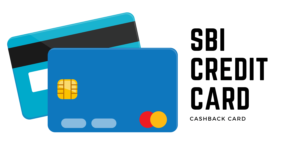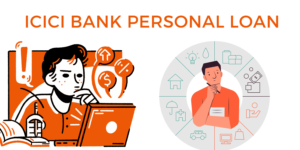Credit Card Kya Hota hai – Credit cards can be a great tool for managing your finances and spending–but they can also lead to financial stress if you don’t understand how they work. To help you make informed decisions about credit, it’s important to know the basics of credit cards. In this blog post, we will explain what a credit card is and how they work, so you can use them responsibly. We’ll also discuss some of the benefits and risks that come with using credit cards, so you know what to expect when applying for one.
What is a credit card?
A credit card is a small plastic card issued by a bank, financial institution, or retailer that allows the cardholder to borrow money against their line of credit. The cardholder can use the credit card to make purchases, pay bills, or withdraw cash up to their credit limit. Each month, the cardholder is required to make a minimum payment towards their balance, and if they are unable to do so, they may be charged interest on the outstanding balance.
How do credit cards work?
When you use a credit card, you are borrowing money from the card issuer. The issuer then pays the vendor for the purchase. You will need to repay the borrowed amount, plus interest and fees, to the issuer.
To do this, you will need to make at least the minimum payment each month. Your credit card statement will list the minimum payment due along with the date it is due. You can also find this information online through your issuer’s website or mobile app.
If you don’t make at least the minimum payment by the due date, you will be charged late fees and your account may be reported to the credit bureaus. This can negatively impact your credit score.
Making payments on time and keeping your balance low relative to your credit limit are two of the most important things you can do to maintain a good credit score.
What are the benefits of using a credit card?
There are many benefits of using a credit card, including the ability to make purchases without carrying cash, the ability to build your credit history, and the convenience of being able to use your card anywhere major credit cards are accepted. Additionally, you may also be able to take advantage of rewards programs offered by some credit card companies, which can give you cash back or points that can be redeemed for travel or other perks.
How to use a credit card responsibly
If you’re like most people, you probably have a few credit cards. And if you’re like most people, you probably use them to make purchases that you couldn’t otherwise afford. But what you may not realize is that using credit cards responsibly can help you improve your financial situation.
Here are a few tips for using credit cards responsibly:
- Pay your bill in full and on time every month. This will help you avoid interest charges and late fees, and it will also help you improve your credit score.
- Use your credit card for emergencies only. If you use your credit card for everyday expenses, you’re likely to get into debt quickly. Only use your credit card when you absolutely need to.
- Don’t max out your credit limit. When you max out your credit limit, it shows lenders that you’re not good at managing your finances. Try to keep your balance below 30% of your credit limit to avoid damaging your credit score.
- Keep an eye on your spending. It’s easy to swipe your card without thinking about the consequences, but it’s important to be aware of how much money you’re spending each month. Track your spending so that you don’t end up in debt.
Conclusion
A credit card is a useful financial tool that can help you make purchases, manage your finances and build up a good credit history. While there are some drawbacks to using one, such as fees and interest charges, when they are used responsibly they can be beneficial in many ways. With the right knowledge and understanding of how to use them wisely, you can take advantage of all the benefits that come with having access to additional funds through a credit card.




